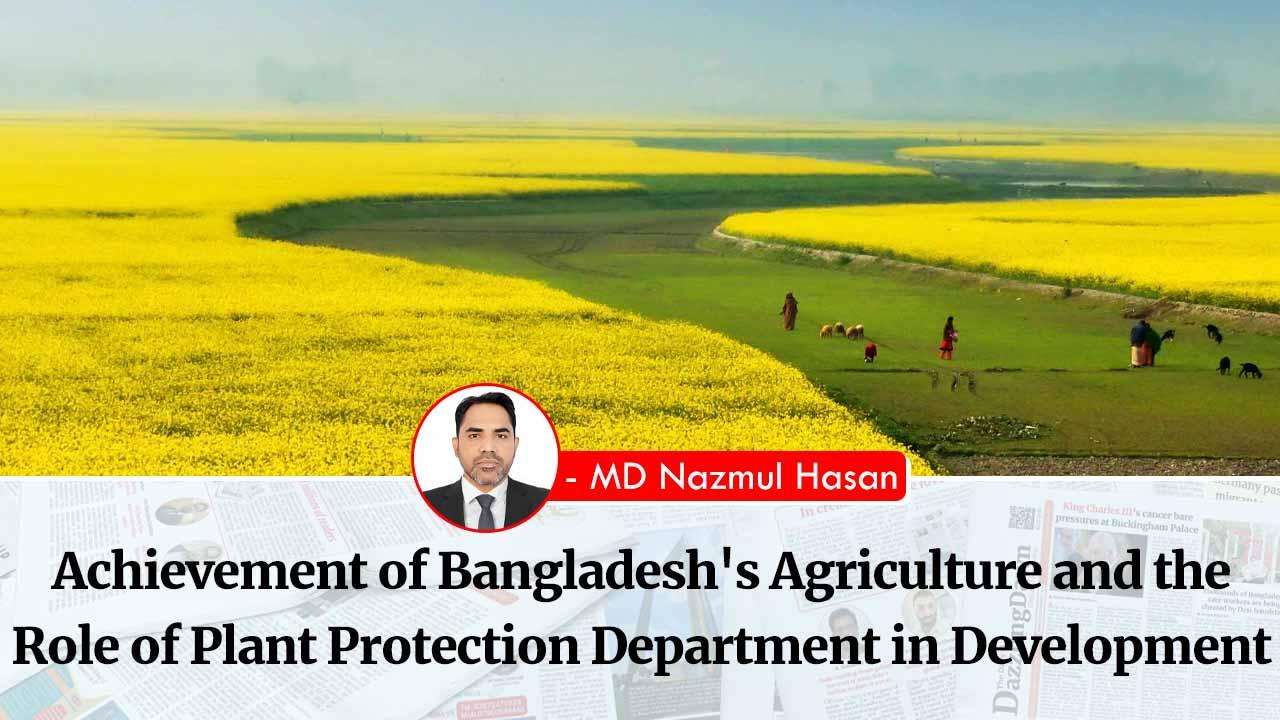Introduction
Bangladesh has risen as a remarkable example of agricultural progress, securing global recognition for its achievements in crop production and farmed goods. The nation’s agricultural triumphs are the result of innovative farming techniques, relentless efforts by farmers, and robust government policies. Central to this success is the Plant Protection Department, which plays a critical role in safeguarding crops, enhancing sustainability, and empowering farmers through modern agricultural practices.
Bangladesh's Agricultural Achievements
Over the last five decades, Bangladesh has transformed its agricultural sector, making significant strides in self-sufficiency and global rankings:
- Rice: Ranked 3rd globally in production.
- Potatoes: Ranked 7th worldwide.
- Tropical Fruits: Positioned 6th globally.
- Jute: Secures the 2nd position in production.
- Farmed Fish: Ranked 5th globally.
The nation is also among the top ten producers of 22 agricultural commodities, according to FAO data, and ranks 36th globally for cropland area, utilizing 0.5% of the world’s croplands.
Agriculture remains a cornerstone of Bangladesh’s economy, engaging approximately 45% of the workforce and contributing 11.38% to the GDP in FY 2022-23. Despite its shrinking share in GDP over the decades, agriculture continues to play a pivotal role in poverty reduction, food security, and rural livelihoods.
Challenges and Transformation
Bangladesh’s agriculture faces significant challenges, including climate change, population growth, and water management issues. Nevertheless, the sector has shown resilience, embracing climate-smart technologies, crop diversification, and sustainable farming practices. Urbanization and the growing demand for nutritious food have further accelerated the transformation, creating new opportunities in horticulture, aquaculture, and livestock farming.
Additional Deputy Director of the Plant Protection Wing, Mr. Hasinur Rahman, shared his insights with The Daily Dazzling Dawn UK:
"The Plant Protection Department is committed to safeguarding our nation’s crops through innovative pest management techniques, ensuring food security and environmental sustainability for future generations."
Role of the Plant Protection Department
The Plant Protection Department, an essential part of the Directorate of Agricultural Extension, is at the forefront of protecting agricultural productivity by preventing and mitigating the impacts of pests and diseases. Its initiatives have been crucial in enhancing crop health and supporting farmers across the country.
Major Responsibilities of the Plant Protection Wing
1. Early Warning and Pest Management
- Conducting surveys to monitor pest outbreaks and assess crop damage.
- Developing and implementing national action plans for major pest control.
- Promoting integrated pest management (IPM) to reduce pesticide use and conserve beneficial insects.
2. Pesticide Regulation and Quality Assurance
- Issuing and renewing licenses for pesticide production, marketing, and use.
- Ensuring quality control and regulated pesticide application to minimize environmental harm.
3. Technical Support and Training
- Offering immediate technical advice to farmers impacted by diseases and pests.
- Disseminating advanced crop protection methods through training programs and field officers.
4. Collaboration and Policy Advocacy
- Partnering with national, international, NGO, and private organizations on pest management initiatives.
- Translating research findings into practical guidelines tailored to farmers’ needs.
Achievements of the Plant Protection Department
The Plant Protection Department has significantly contributed to Bangladesh’s agricultural progress through:
- A substantial reduction in pesticide dependency by advancing IPM techniques.
- Timely interventions during pest outbreaks, safeguarding crop yields and national food security.
- Establishing a robust framework for pesticide regulation, promoting environmental sustainability.
The Way Forward
As Bangladesh continues its journey toward sustainable agricultural growth, the Plant Protection Department must focus on leveraging cutting-edge technologies, strengthening disaster management strategies, and fostering regional collaboration in water resource management. Emphasis on climate-resilient agricultural practices and innovative pest management solutions will be crucial to overcoming emerging challenges.
Conclusion
Bangladesh’s achievements in agriculture reflect the dedication and resilience of its people and the vital role of institutions like the Plant Protection Department. By addressing challenges and capitalizing on opportunities, the department will continue to be instrumental in ensuring food security, sustainability, and the overall development of Bangladesh’s agricultural sector.
---
Author: MD Nazmul Hasan
Director, National Institute of Global Studies (NIGS)








.svg)
